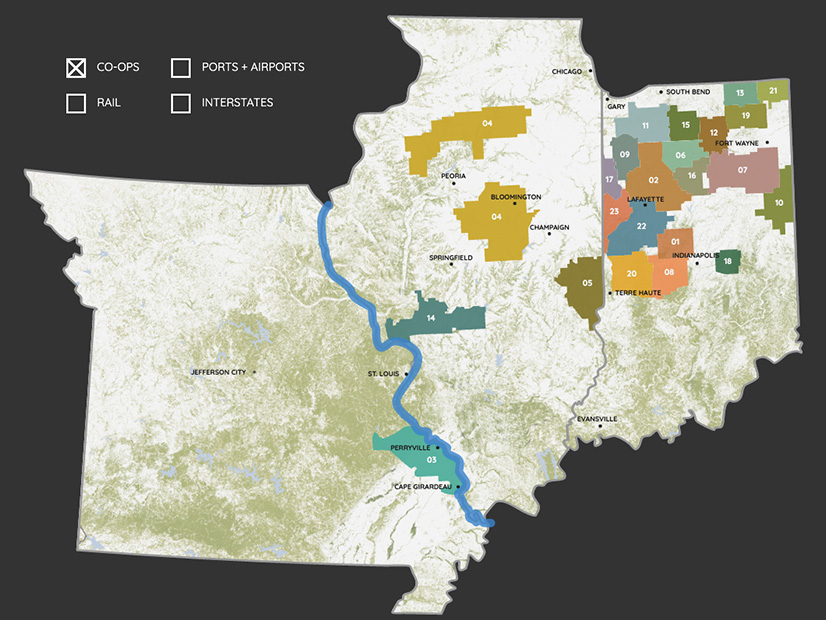
FERC acted reasonably in rejecting a Wabash Valley Power Association power contract and denying it a Mobile-Sierra presumption, the D.C. Circuit Court of Appeals ruled Tuesday (20-1286).
The court upheld FERC’s April 2020 ruling over how to determine the reasonableness of rates for the sale of electricity from an energy cooperative to its individual member utilities (ER20-1101).
Indiana-based Wabash Valley generates and transmits electricity to 25 members in Indiana, Illinois and Missouri. Wabash’s bylaws give each member one seat on its board of directors, which acts by majority vote.
In 2020, Wabash executed new contracts with all but two of its 23 retail-serving members. The new contracts continued the prior practice of requiring members to pay the formulary rate tariff and empowering Wabash’s board to raise the rate to produce sufficient revenue to meet the co-op’s costs. But it also added a new provision asserting that any changes to the formulary rate tariff were entitled to the Mobile-Sierra presumption of justness and reasonableness, which can only be overcome only if FERC concludes that the contract seriously harms the public interest.
Tipmont Rural Electric Membership Cooperative, one of the two member utilities that did not sign the new contracts, protested to FERC that the Mobile-Sierra presumption should not apply to changes to the formulary rate tariff. The commission agreed, ruling that the tariff is a “generally applicable rate” rather than a contract rate, making the new language “an unlawful attempt to apply the public interest presumption to proposed changes to Wabash’s tariffs.”
In denying rehearing, FERC said the rate “is generally applicable to all Wabash members and is not negotiated between Wabash and its executing members on an individualized basis. Rather, the Wabash board of directors determines the rates.” In determining whether a unilaterally set tariff rate is just and reasonable, FERC must balance the interest of the investor and the consumer.
In its appeal, Wabash challenged FERC’s refusal to apply the Mobile-Sierra doctrine.
The D.C. Circuit agreed with FERC, saying a “contract requiring the purchaser to pay a utility’s ‘going rate’ on file with FERC, without more, does not eliminate review under the ordinary just-and-reasonable standard.”
The court noted that Wabash’s contracts with individual members are virtually identical, suggesting that “individual members face a ‘binary,’ take-it-or-leave-it choice” — not the “presumptively equal bargaining power” required under Mobile-Sierra.
Wabash contended its rate changes are not unilateral because member utilities control the board. But the court noted that each individual member controls only 4% of the board’s votes.
While individual members collectively own the cooperative and benefit from higher prices charged by Wabash and passed on to retail customers, the individual utilities “lack the same incentive as a buyer negotiating with an unrelated seller for the lowest possible prices,” the court said. “In other words, the utilities are effectively on both sides of the transaction. And the Mobile-Sierra presumption applies only to rates that are ‘the product of adversarial negotiations between sophisticated parties pursuing independent interests.’”
The court declined to rule on FERC’s assertion on rehearing that a contract must contain individualized terms to enjoy the Mobile-Sierra presumption.
“We do not read FERC’s decision as resting on a per se rule that the presumption can never apply to form contracts, and we do not opine on such a sweeping rule. We simply conclude that, in this case, the small bargaining power of any individual member relative to the cooperative plus the highly standardized nature of the governing contracts supports FERC’s conclusion that the contracts impose a unilateral tariff rate as opposed to a freely negotiated bilateral contract rate,” it said.



